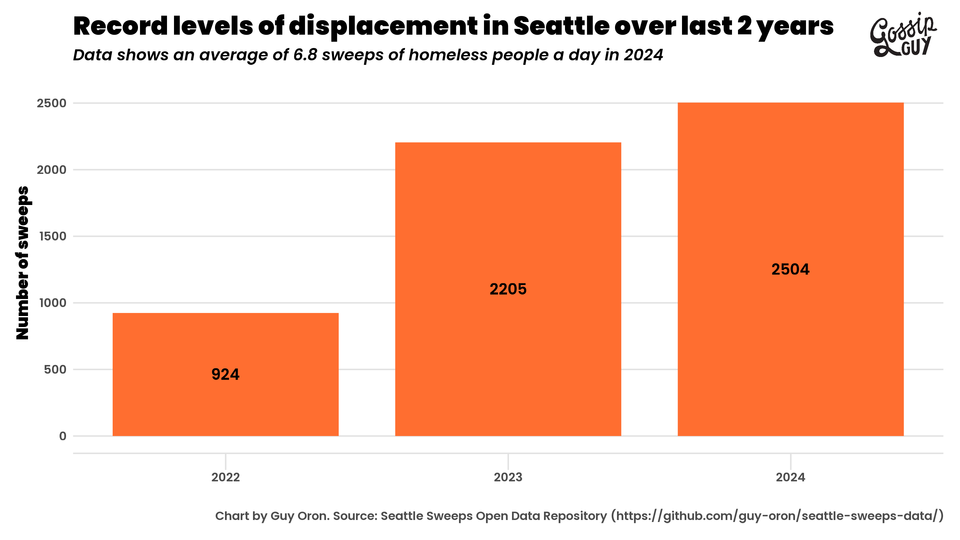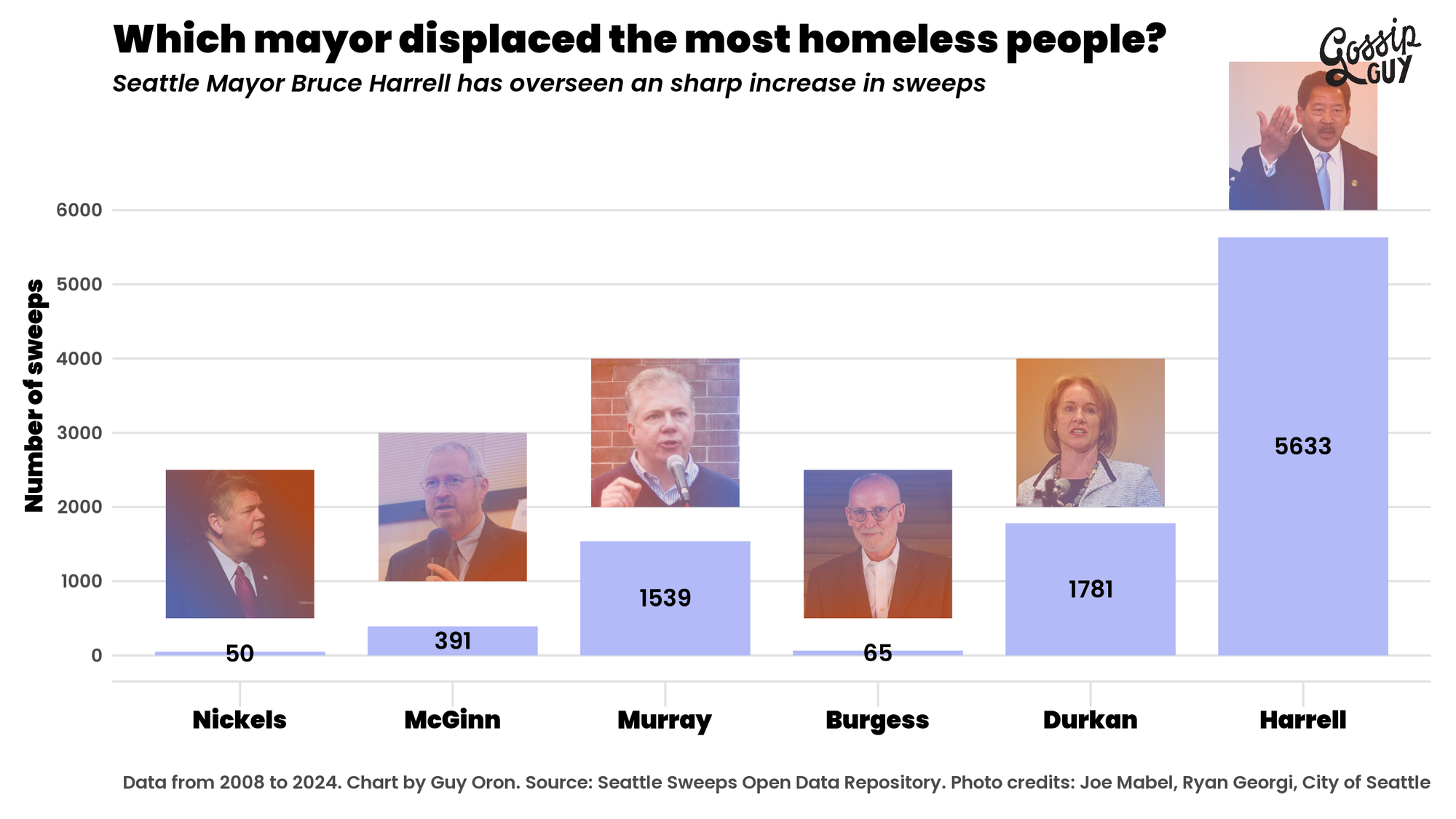Seattle swept homeless people 2,500 times in 2024, marking continued record levels of displacement

For a second year in a row, Seattle carried out more than 2,000 sweeps of homeless people throughout the city in 2024. New data, obtained through a public records request, shows that Seattle’s Unified Care Team (UCT) removed a total of 2,504 encampments, vehicles and tents in 2024 — an average of 6.8 removals a day. In 2023, the city swept unhoused Seattleites 2,205 times.
The records show the results of two years of full operation by the UCT, an interdepartmental agency tasked with responding to people living in irregular shelters. The team had a combined 2023-2024 budget of $52.5 million. For the 2025-2026 biennium, the UCT is projected to receive $66 million, allowing the city expand its sweeps operations to the weekends.
Forcible removals of homeless people are commonly described with hygienic terms like “sweeps” or “clean ups.” However, the realities of what it means to undergo a sweep is far from orderly — it can be a deeply traumatic experience in which someone is forced to pack up their things at a moment’s notice. Having one’s precious items be discarded during a sweep is common, as a ProPublica investigation recently found.
The data also shows that 84.3% of sweeps in 2024 were done with little-to-no prior notice. Under Seattle’s administrative rules, if a tent, encampment or vehicle is classified as an “obstruction” or “hazard,” it can be removed immediately. The ACLU of Washington has sued the city over this aspect of the sweeps policy, arguing the designation of obstruction or hazard is too broad and vague, violating unhoused people’s constitutional rights.
In addition to the raw number of sweeps, the 2024 sweeps log also records a sharp increase in the number of tents removed, rising from 1,638 to 4,147 between 2023 and 2024. The number of structures and vehicles removed declined in 2024 in comparison with 2023 numbers.
The current iteration of Seattle’s sweeps policy has been largely defined by one man: Seattle Mayor Bruce Harrell. During his 2021 election campaign, Harrell pledged to disperse the large encampments that had built up during the Covid-19 pandemic emergency and to keep parks and public spaces clear. In the press statement announcing his reelection campaign last year, Harrell celebrated “a more than 80% decrease in tent encampments” as one of his three principal accomplishments.
The numbers appears to confirm this perception, with Seattle sweeping more homeless people under Bruce Harrell’s administration than all five of his predecessors combined. Over Harrell’s first three years in office, Seattle conducted a total of 5,633 sweeps. Under the administrations of former mayors Jenny Durkan and Ed Murray, Seattle carried out 1,781 and 1,539 sweeps, respectively.

Harrell’s aggressive sweeps policy has engendered widespread criticism from progressives, unhoused people and housing advocates, who say the practice is cruel and ineffective. Although homeless people in Seattle are now less visible with the dismantlement of large, semi-permanent encampments, the number of people living on the streets has actually increased. In its most recent Point-In-Time count, the King County Regional Homelessness Authority found that between 2022 and 2024, the amount of people living unsheltered or in emergency shelters in King County rose by nearly 28%.
In 2023, the Services Not Sweeps coalition launched a campaign to restrict sweeps during severe weather events in an effort to mitigate the policy’s harmful impacts on homeless people’s health and livelihoods. My own original data analysis, published in Real Change last week, found that almost 43% sweeps conducted between 2022 and 2024 were done during days with severe cold, heat or air quality events.
I have added the 2024 sweeps log, as well as my code and methodology for data analysis and visualizations, to the Seattle Sweeps Open Data Repository. The repository is a grassroots archival and research project hosted on GitHub with a mission to support researchers, journalists, activists and the wider public who seek to better understand Seattle’s policies around homelessness.



Member discussion